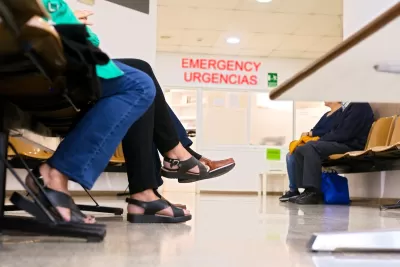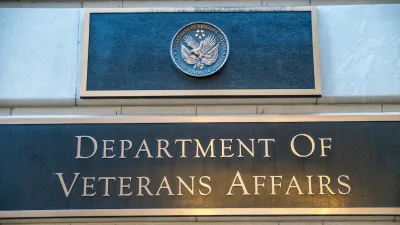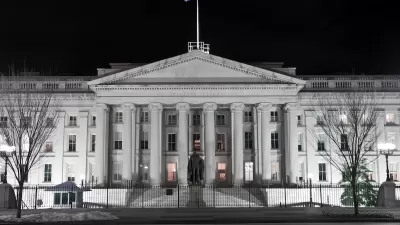The state will begin funding an existing program that targets the healthcare needs of people experiencing or at risk of homelessness.

Maryland is launching a pilot program that acknowledges the link between housing and health. “The Assistance in Community Integration Services pilot’s housing-first approach, experts say, could further reduce health care expenditures and help people transition from homelessness to a stable home,” explains Kaitlyn Levinson in Route Fifty.
The program focuses in on addressing the health needs and illnesses that often cause people to become or stay homeless. “Since 2018, the city of Baltimore and Cecil, Montgomery and Prince George’s counties have participated in the initiative. The jurisdictions, with the help of hospitals, have matched federal funds for the Medicaid program, which could total up to $7.2 million annually, according to the Maryland Department of Health.” Now, the state is pitching in to expand the initiative to all of Maryland.
According to a 2023 report, 77 percent of 615 program participants, 80 percent of whom were unhoused, moved into stable housing. Ryan Moran, deputy secretary of health care financing at Maryland’s Department of Health and the state’s Medicaid director, said the study validated what many advocates already know. “This is a worthwhile, long-term investment for the state … for individuals’ lives, and we know that Marylanders will be better off having been served through a program as innovative and novel as this one.”
FULL STORY: A prescription for housing?

Study: Maui’s Plan to Convert Vacation Rentals to Long-Term Housing Could Cause Nearly $1 Billion Economic Loss
The plan would reduce visitor accommodation by 25,% resulting in 1,900 jobs lost.

North Texas Transit Leaders Tout Benefits of TOD for Growing Region
At a summit focused on transit-oriented development, policymakers discussed how North Texas’ expanded light rail system can serve as a tool for economic growth.

Why Should We Subsidize Public Transportation?
Many public transit agencies face financial stress due to rising costs, declining fare revenue, and declining subsidies. Transit advocates must provide a strong business case for increasing public transit funding.

How to Make US Trains Faster
Changes to boarding platforms and a switch to electric trains could improve U.S. passenger rail service without the added cost of high-speed rail.

Columbia’s Revitalized ‘Loop’ Is a Hub for Local Entrepreneurs
A focus on small businesses is helping a commercial corridor in Columbia, Missouri thrive.

Invasive Insect Threatens Minnesota’s Ash Forests
The Emerald Ash Borer is a rapidly spreading invasive pest threatening Minnesota’s ash trees, and homeowners are encouraged to plant diverse replacement species, avoid moving ash firewood, and monitor for signs of infestation.
Urban Design for Planners 1: Software Tools
This six-course series explores essential urban design concepts using open source software and equips planners with the tools they need to participate fully in the urban design process.
Planning for Universal Design
Learn the tools for implementing Universal Design in planning regulations.
City of Santa Clarita
Ascent Environmental
Institute for Housing and Urban Development Studies (IHS)
City of Grandview
Harvard GSD Executive Education
Toledo-Lucas County Plan Commissions
Salt Lake City
NYU Wagner Graduate School of Public Service





























